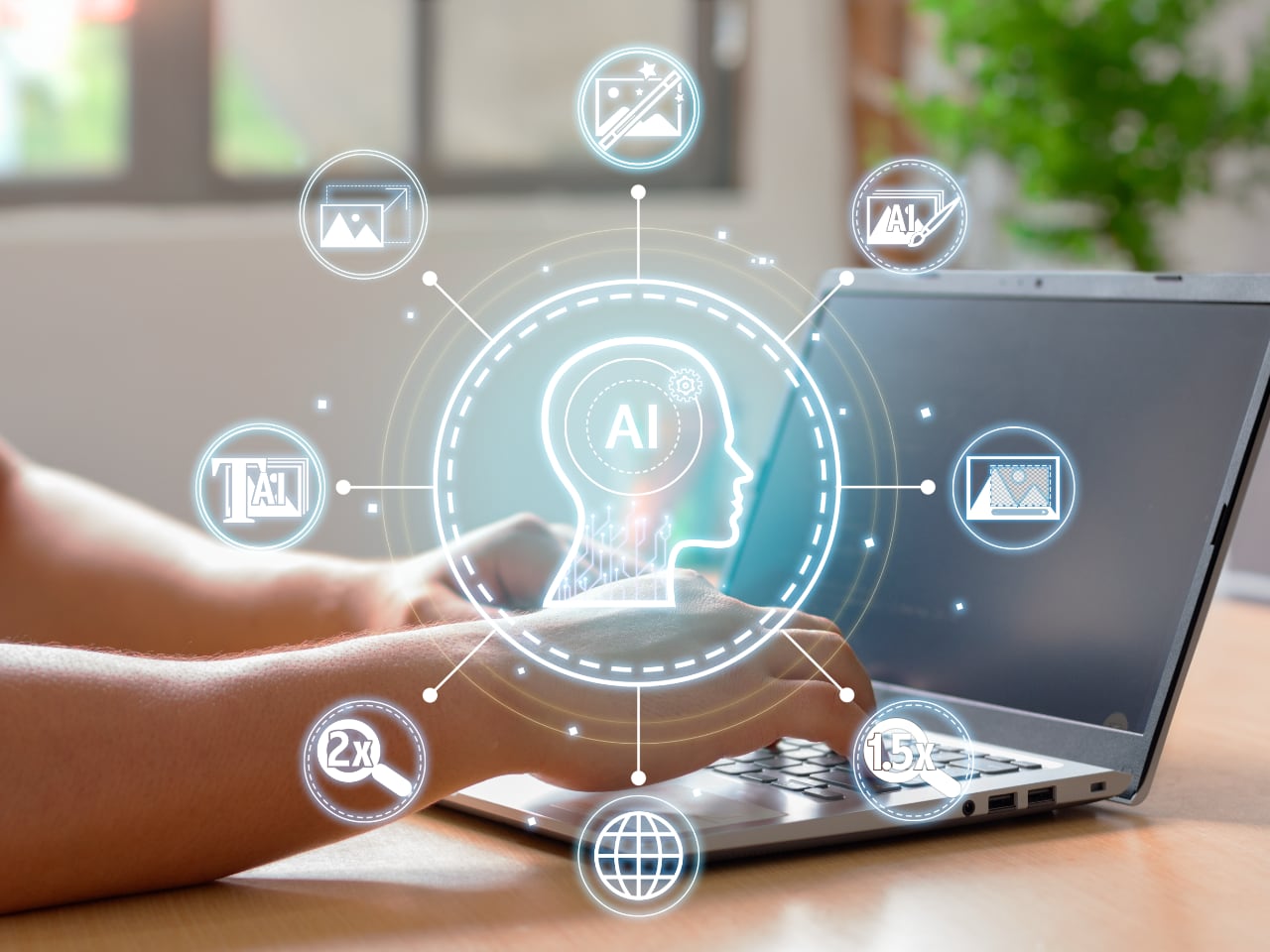As we embrace 2025, it’s clear that artificial intelligence has firmly embedded itself into the fabric of our lives. Far from being a futuristic concept, AI is now a reality shaping how we work, live, and interact with the world. At Yanko Design, we’re kicking off the year by exploring how AI is transforming design and technology, bridging the gap between innovation and daily functionality.
AI-Driven Personal Devices
In 2025, AI-powered devices will no longer be limited to sci-fi fantasies. Smartphones will no longer be just tools for communication. With generative AI capabilities becoming a standard, these devices will learn user habits, predict needs, and enhance personalization like never before. Smart glasses are emerging as the next frontier. Companies such as Apple and Google, along with emerging brands like Looktech and Even Realities, among others, are set to redefine wearables with real-time translations, navigation, and augmented reality.
Avi Greengart
Meanwhile, smaller, cost-effective AI models like the DeepSeek V3 are reshaping the AI landscape by offering advanced capabilities at a fraction of the cost. Compared to larger proprietary models, DeepSeek V3’s open-source nature and efficient architecture make it highly accessible for developers and researchers, while its performance rivals that of more expensive systems in coding, multilingual tasks, and reasoning. This accessibility stresses its potential to democratize AI applications across diverse fields. DeepSeek V3, developed by the Chinese firm DeepSeek, uses a groundbreaking Mixture-of-Experts architecture to deliver remarkable efficiency and performance. This model’s open-source nature and affordability are sparking conversations about democratizing AI technology. I’m also looking forward to testing out offerings from other brands debuting at CES 2025, which promise exciting innovations in this space.
Laptops have also entered an AI-driven renaissance. Enhanced by real-time analytics and automated workflows, they’re indispensable for professionals seeking more productive and creative ways to work. I’m particularly eager to see what Lenovo will unveil at CES, as their recent strides in AI-integrated laptops have been impressive.
Smarter Homes and Connected Cities
AI is transforming the spaces we live in, making everyday tasks smarter and more intuitive. Refrigerators now order groceries, and thermostats adjust settings automatically to match your preferences and the weather. These advancements are no longer concepts—they are part of daily life. Looking ahead, Apple is rumored to be developing a HomePod with a 7-inch display, aiming to integrate smart home controls, media playback, and video calling into a single device. This development could further enhance the seamless integration of AI into our homes.
Adaptive AI systems are making urban environments smarter. For instance, Hisense’s Urban Governance Platform, debuting at CES 2025, optimizes traffic, public transit, and disaster prevention measures. Cities like Qingdao are already seeing AI transform daily commutes with responsive train schedules and traffic signals.
Redefining Creativity and Information
AI is reshaping how we create and consume content, offering significant advantages and raising critical questions for everyday users. Video production and AI-generated media are opening new pathways for storytelling and design by automating repetitive tasks and enabling rapid content generation. For consumers, this means access to more personalized and diverse content, but it also raises concerns about the authenticity and creative value of AI-driven works.
AI-powered search platforms are transforming how we find information. These systems deliver instant, concise answers tailored to specific queries, saving time and reducing information overload. However, for everyday users, there are drawbacks, including potential over-reliance on AI-generated summaries and reduced visibility of nuanced perspectives available in traditional search methods. The growing demand for efficiency underscores the need for careful consideration of how these tools are integrated into our daily lives.
Design in the AI Age
At Yanko Design, we’ll continue to explore how AI influences the aesthetics and functionality of modern products. From AI-enhanced appliances to devices with integrated intelligence, the intersection of design and AI offers endless possibilities.
In 2025, we plan to explore these advancements further by covering the technology and its broader implications, including user experience, environmental sustainability, and design ethics. Our reporting will feature in-depth analyses, hands-on reviews, and interviews with key innovators.
The CES 2025 event will serve as a key focus for us, highlighting how groundbreaking innovations reshape usability and design. By prioritizing intuitive, sustainable, and ethically responsible solutions, we aim to navigate the challenges and opportunities AI presents for designers and consumers alike.
The post Welcome to 2025: The Future of AI and Design first appeared on Yanko Design.

